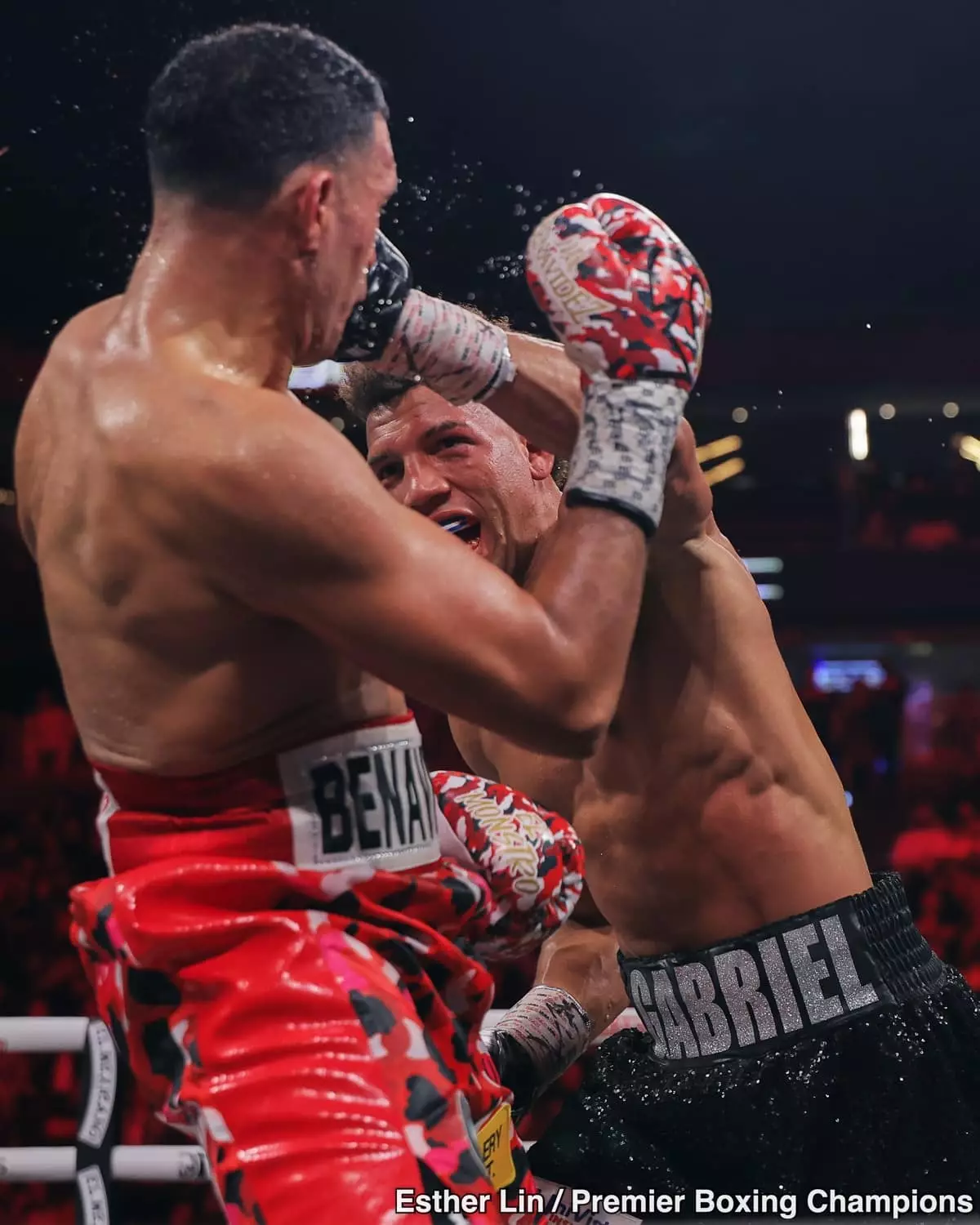The thrilling encounter between David Benavidez and David Morrell last Saturday night at the T-Mobile Arena was nothing short of a spectacle for boxing fans. While Benavidez walked away with a unanimous decision victory, the details of the fight and the circumstances surrounding it have ignited a heated debate about the match’s true outcome. Promoter Sampson Lewkowicz has publicly expressed his inclination for a rematch, emphasizing that if the boxing community demands it, he will support a second bout between the two fighters. The match provided a captivating display of athleticism and grit, but it also raised questions about judging criteria and fight dynamics—an essential part of understanding professional boxing.
From the opening bell, the fight showcased contrasting styles that made for an exhilarating 12-round contest. Morrell, a Cuban southpaw with a reputation for power, appeared to dominate certain aspects of the fight with his precise and impactful punches. Meanwhile, Benavidez utilized a more frenetic pace, delivering rapid-fire shots aimed at impressing the judges rather than effectively compromising Morrell’s performance. Despite the judges awarding Benavidez a clear victory with scores of 115-111, 115-111, and 118-108, many analysts and fans observed that the fight felt more closely contested than those numbers suggest. There were numerous moments where Morrell’s power appeared to shake Benavidez, highlighting the disparity between judges’ perceptions and the live action unfolding in the ring.
The disparity in scorecards became a focal point of contention among fans and analysts alike. While Benavidez’s undefeated record now boasts a new notch, his swollen face told a different story—a narrative of heavy hits absorbed throughout the fight, in contrast to Morrell’s relatively pristine appearance afterward. The 11th round showcased a pivotal moment where Morrell knocked Benavidez down, casting further doubt on the discretion of the judges. Amidst these developments, the referee’s decision to penalize Morrell for a late shot after the bell raised eyebrows, as many believed the retaliation was an equal reaction to an infraction from Benavidez. This kind of controversy surrounding decision-making in boxing can reflect a broader issue regarding the subjective nature of scoring in the sport.
Looking ahead, the boxing landscape is filled with potential power plays. As Lewkowicz waits for the WBC to determine potential mandatory bouts for Benavidez following the anticipated rematch between Artur Beterbiev and Dmitry Bivol, the prospect of a Benavidez-Morrell rematch hangs tantalizingly in the balance. If Bivol secures victory, a trilogy fight with Beterbiev could occupy Benavidez’s schedule, leaving him idle. However, as Lewkowicz asserts, the appeal of a rematch against Morrell could fulfill both fan desire for continued competition and Benavidez’s need for meaningful bouts in lieu of lesser-known light heavyweight contenders.
The crux of the matter revolves around audience engagement and demand. Lewkowicz articulates the critical role of fan input in shaping the future of these matchups: “If the people want to see it, we’ll do it again.” This highlights a fundamental shift in boxing, where the voice of the fans may hold equal weight in determining match outcomes as the traditional mechanisms of ranking and decision-making. The push for a rematch indicates that boxing is not merely a sport but also a performance driven by its audience. It invites a dialogue on creating bouts that not only entertain but also showcase the genuine skill and artistry that fighters bring into the ring.
As we scrutinize the aftermath of Benavidez vs. Morrell, the implications stretch far beyond the judges’ scorecards. With significant room for interpretation and passionate discourse within the boxing community, the prospect of a rematch is both tantalizing and complicated. The desire for transparency, fairness, and the genuine recognition of athletic prowess underscores the evolving landscape of boxing, where future matchups can lead to dividends not just for fighters, but for the entire sport.


Leave a Reply